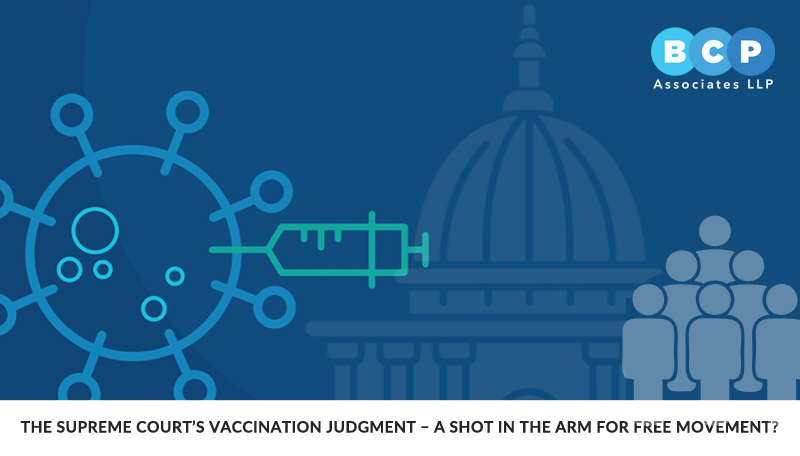
Opinions have been flowing about how the Hon’ble Supreme Court of India in its recent judgment in Jacob Puliyel vs. Union of India & others has held that bodily integrity is protected under Article 21 of the Constitution and no individual can be forced to be vaccinated. The Court also held that “. . . personal autonomy of an individual, which is a recognised facet of the protections guaranteed under Article 21, encompasses the right to refuse to undergo any medical treatment in the sphere of individual health”.
At the same time, however, the Court has held that in the interest of protection of communitarian health the Government is entitled to regulate issues of public health concern by imposing certain limitations on individual rights, which are open to scrutiny by constitutional courts using the tests of privacy developed in its earlier judgment in K. S. Puttaswamy vs. Union of India. On that basis, the Court held that it was “satisfied that the current vaccination policy of the Union of India is informed by relevant considerations and cannot be said to be unreasonable or manifestly arbitrary”.
The Court has also ‘suggested’, however, that till the infection rate remains low and any new development or research finding emerges which provides due justification to impose reasonable and proportionate restrictions on the rights of unvaccinated individuals, all authorities in this country, including private organizations and educational institutions, review the relevant orders and instructions imposing restrictions on unvaccinated individuals in terms of access to public places, services and resources, if not already recalled.
The suggestion was however limited to the present situation alone and not to be construed as interfering with the lawful exercise of power by the executive to take suitable measures for prevention of infection and transmission of the virus. The suggestion was also stated not to extend to any other directions requiring maintenance of COVID-appropriate behaviour issued by the Union or the State Governments.
The order, therefore, has upheld the right of individuals to choose not to be vaccinated. At the same time, it has upheld the current vaccination policy of the Union of India but has simultaneously suggested review of the very same policy. It does not however prohibit the continuation of directions requiring Covid-appropriate behaviour as passed by the Central and State Governments.
It would appear from all the foregoing verbiage that the Supreme Court has not, in fact, struck down anything whatsoever. The only requirement is for the Government to review its existing policy in light of the current state of infections, with the freedom to take action later as the situation develops. The right or duty of employers, for example, to ensure that only vaccinated persons enter the premises continues in effect, till such time as the Government terminates those orders after having reviewed the situation and come to the conclusion that the rate of infections warrants removal of restrictions.
Again, it must be emphasised that the order does not take the right of the Government to pass similar orders again in the future to check any increase in the infection rate. We have already been hearing warning noises about an anticipated increase in infections in June this year.
It may be noted that there has never been a mandate on individuals to get vaccinated. Only employers have been mandated to get their employees vaccinated and ensure other Covid-appropriate behaviour on threat of penal action, and there have been general restrictions imposed on entry into public places etc. by unvaccinated persons. Given that the Court has only suggested that the Government review its earlier orders, it is likely that the situation will remain exactly the same as it has been given the impending fourth wave. Any celebrations at this point, it would appear, would be premature.